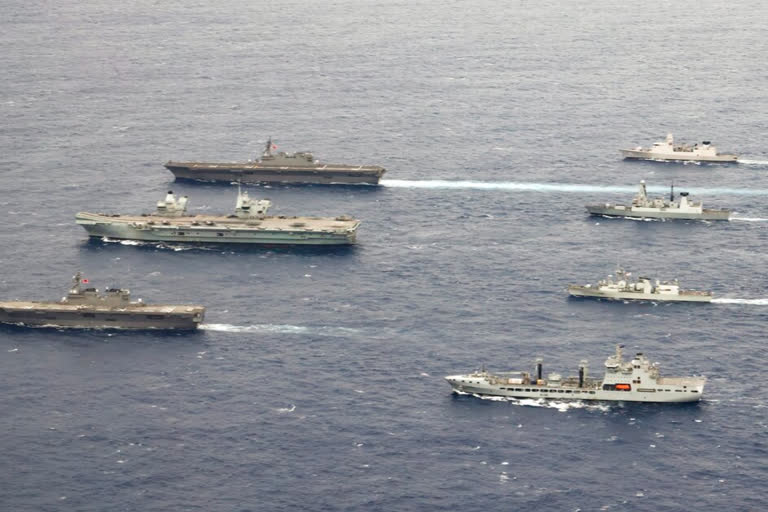Bangkok: With increasingly strong talk in support of Taiwan, a new deal to supply Australia with nuclear submarines, and the launch of a European strategy for greater engagement in the Indo-Pacific, the U.S. and its allies are becoming growingly assertive in their approach toward a rising China. China has bristled at the moves, and the growing tensions between Beijing and Washington prompted U.N. Secretary-General Antonio Guterres on the weekend to implore President Joe Biden and Chinese leader Xi Jinping to repair their “completely dysfunctional” relationship, warning they risk dividing the world.
As the U.N. General Assembly opened Tuesday, both leaders chose calming language, with Biden insisting “we are not seeking a new Cold War or a world divided into rigid blocs,” and Xi telling the forum that “China has never, and will never invade or bully others or seek hegemony.” But the underlying issues have not changed, with China building up its military outposts as it presses its maritime claims over critical sea lanes, and the U.S. and its allies growing louder in their support of Taiwan, which China claims as part of its territory, and deepening military cooperation in the Indo-Pacific.
On Friday, Biden hosts the leaders of Japan, India and Australia for an in-person Quadrilateral Security Dialogue for broad talks including the COVID-19 pandemic and climate change, but also how to keep the Indo-Pacific, a vast region spanning from India to Australia, “free and open," according to the White House. It comes a week after the dramatic announcement that Australia would be dropping a contract for conventional French submarines in favor of an Anglo-American offer for nuclear-powered vessels, a bombshell that overshadowed the unveiling of the European Union’s strategy to boost political and defense ties in the Indo-Pacific.
“One thing is certain, that everyone is pivoting toward the Indo-Pacific,” said Garima Mohan, an Asia program fellow with the German Marshall Fund think tank. As partners pursue moves that play to their own strengths and needs, however, the past week has underscored the lack of coordination as a networked security strategy develops, she said. “Not everyone has the same threat assessment of China,” she said in a telephone interview from Berlin.
The EU policy emphasizes the need for dialogue with Beijing, to encourage “China to play its part in a peaceful and thriving Indo-Pacific region,” while at the same time proposing an “enhanced naval presence” and expanded security cooperation with regional partners. It also notes China's increased military buildup, and that “the display of force and increasing tensions in regional hotspots such as in the South and East China Sea, and in the Taiwan Strait, may have a direct impact on European security and prosperity.”
Germany, which has close economic ties to China, got a wake-up call last week when China rejected its request for a port call for the frigate Bavaria, which is currently conducting maneuvers in the Indo-Pacific. “China is telling them this inclusive approach is not going to work, so in a way it’s a rude awakening for Berlin,” Mohan said. “You have to take a position, you can’t have your cake and eat it too, and if you have an Indo-Pacific strategy ... you can’t make it neutral.”
Other EU countries, most notably France, have also sent naval assets for exercises in the Indo-Pacific, and Britain has had a whole carrier strike group conducting exercises for several months as London pursues the new tilt toward the region recommended by a recent British government review of defense and foreign policy. China’s Foreign Ministry said after rejecting the Bavaria's port call that it remained “willing to carry out friendly exchanges with Germany on the basis of mutual respect and mutual trust,” but made clear it was displeased with the increased naval presence in the region.
“Individual powers... have repeatedly dispatched military aircraft and warships to the South China Sea for some time in the name of exercising freedom of navigation to flex muscle, stir up trouble and deliberately provoke conflicts on maritime issues,” spokesman Zhao Lijian said. “China’s determination to safeguard national and territorial sovereignty and maritime rights and interests is unwavering, and will continue to properly handle differences with the countries concerned through consultations and negotiations.”
